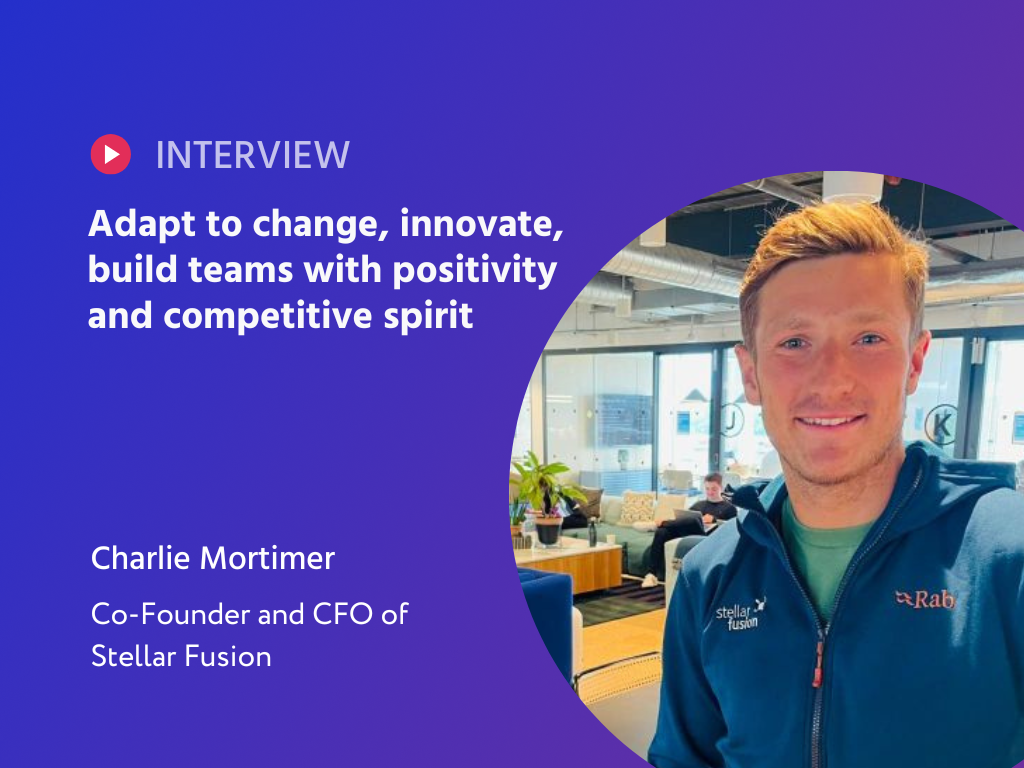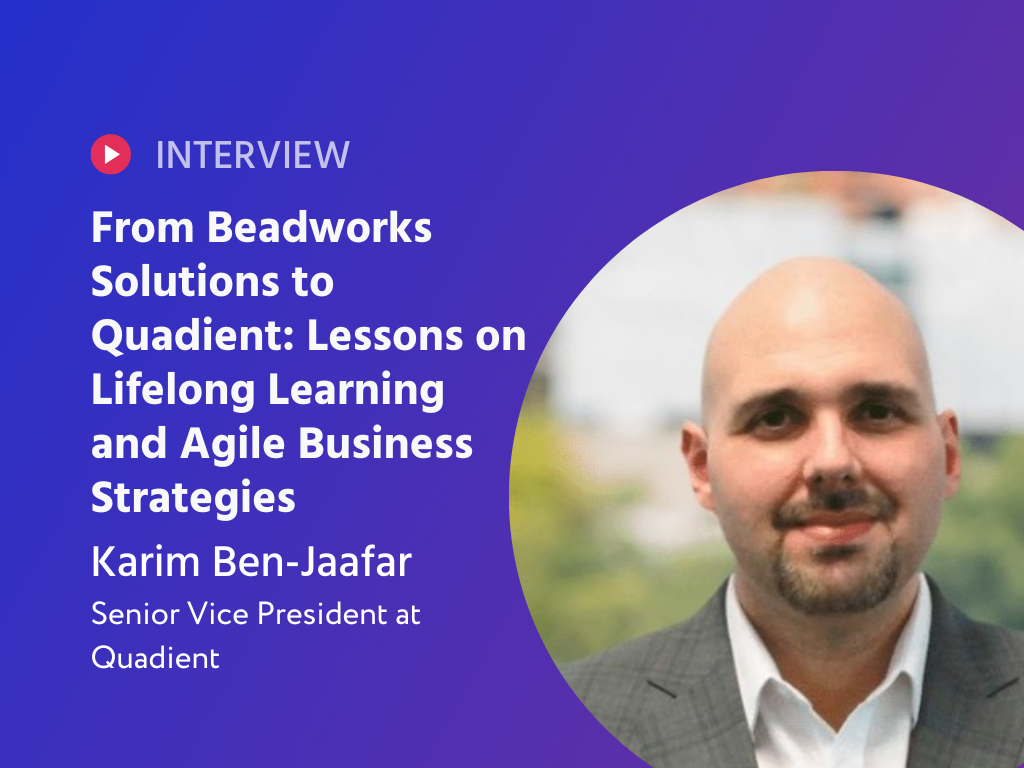In today’s edition of Bright Founders Talk, we explore the innovative intersection of technology and healthcare. This time, we focus on the inspiring journey of Thomas Knox, Founder and CEO of VitVio. His company is pioneering the use of artificial intelligence and computer vision to transform surgical procedures, driving significant improvements in efficiency and precision. Through this article, we’ll dive into how Knox and his team are shaping the future of healthcare technology, offering insights into the challenges and breakthroughs that come with leading a cutting-edge company.
Thomas brings a wealth of experience, having played a pivotal role in scaling multiple startups into billion-dollar enterprises. Before his ambitious venture with VitVio, he was instrumental in expanding Kiwi.com and pioneering innovations at iFi, setting benchmarks in the autonomous store space. In our interview, Thomas shares his journey from the ground up, revealing how personal reflections and profound experiences shaped his entrepreneurial spirit and led him to redefine operational efficiencies in healthcare.
With a passion for impactful innovation, Thomas discusses how VitVio revolutionizes the medical field by streamlining surgical procedures, thereby improving safety and fostering continuous learning. Join us as we explore how Thomas Knox's leadership at VitVio is not just about technological advancement, but a quest to significantly enhance the quality of healthcare delivery, making an indelible mark on the industry.
Thomas Knox: Pioneering the Future of Healthcare with AI and a Vision for Greater Impact
Thomas Knox, the Founder and CEO of VitVio, isn't just about groundbreaking ideas; he's about making those ideas matter deeply. In his journey from startup whiz to healthcare innovator, Thomas has transitioned from helping hyper-growth startups soar in value to enhancing life-saving efficiencies in surgery rooms. It's not just the tech that excites him; it's the potential to significantly alter how healthcare functions. "At VitVio, we're not just installing cameras, we're crafting a new vision for healthcare efficiency," Thomas explains, highlighting the company's focus on deploying AI-driven systems to improve both safety and operational flow in surgical environments.
At VitVio, we're not just installing cameras; we're crafting a new vision for healthcare efficiency
Thomas's passion for meaningful impact was ignited by personal reflection following his father's passing—a moment that reshaped his career path towards something profoundly impactful. "If I were to pass away today, would I be proud of the things I did?" This poignant question led him to leverage his expertise towards healthcare, where he saw an urgent need for innovation. At VitVio, they use computer vision to streamline surgical operations, thus reducing manual data entry burdens and enhancing procedural efficiency. "Our goal is to ensure that technology serves the staff, not the other way around," he notes, revealing a commitment to both technological and compassionate progress.
Perhaps what stands out most in Thomas's vision is his holistic approach to technology's role in healthcare. By integrating AI with practical, on-the-ground operations in hospitals, VitVio aims to preempt the needs of medical staff, thereby smoothing transitions between surgeries and increasing overall hospital efficiency. "We've seen how AI can anticipate needs and act upon them, drastically cutting down unnecessary delays," Thomas shares. This isn't just innovation for the sake of innovation—it's about creating a seamless, supportive environment where technology and human effort align to save lives and improve care. His vision for VitVio is clear, "We want to be the invisible hand that guides smoother, safer surgeries." This quote encapsulates the ethos of VitVio: technology as a silent yet powerful ally in the high-stakes world of healthcare.
Revolutionizing Hospital Efficiency: Thomas Knox Discusses VitVio’s Cutting-Edge AI in Surgical Rooms
Diving deep into the conversation, Thomas Knox highlights the critical role of efficiency in modern healthcare, particularly under the strains of rising costs and aging populations. "Every hospital on the planet is having trouble keeping up," he remarks, underlining the urgency for innovative solutions. VitVio's approach? Deploying smart AI cameras that track everything from 'knife to skin' times to patient exits, automating what has traditionally been a manual, error-prone process. This shift not only speeds up operations but enhances the accuracy of medical records, removing guesswork for overburdened medical staff.
Explaining the nuts and bolts, Thomas gets technical about how VitVio's system transforms a busy surgery room into a finely tuned orchestration of data and action. The cameras aren't just recording; they're intelligently interpreting movements into a digital choreography. "Imagine converting a medical team into video game characters, where every joint and action is mapped in real-time," Thomas illustrates. This level of detail offers unprecedented insights into the workflow, enabling minute-by-minute analysis and response, which dramatically refines operational efficiency and team coordination.
Thomas acknowledges the complexity of integrating such advanced technology into high-stress environments like surgery rooms. "It's a challenge, no doubt, but one we're equipped to handle," he states confidently. Bridging the gap between traditional healthcare practices and cutting-edge technology involves not just technical prowess but a deep understanding of surgical workflows, gained from countless interviews with medical professionals. This collaborative approach ensures that VitVio's innovations are both practical and revolutionary, tailoring AI insights to the real-time needs of surgical teams. Thomas Knox’s vision is clear: "We want our systems to work seamlessly, making hospitals safer and more efficient without adding to the workload of medical staff." This quote sums up the transformative impact VitVio aims to achieve in the healthcare sector.
Thomas Knox on Navigating Innovation and Integration Challenges in Surgical AI
Thomas Knox brings a pragmatic yet visionary approach to the forefront of healthcare technology at VitVio. He emphasizes the critical intersection of operational efficiency and medical necessity in operating theaters, recognizing the substantial economic implications tied to these spaces. "Everyone knows the challenges of ORs—40% of hospital expenses and up to 70% of their profits stem from here," Thomas notes, highlighting the inherent pressure to innovate efficiently. This awareness isn't just academic; it's steeped in a rich bedrock of peer-reviewed research and industry knowledge, ensuring that their solutions are both grounded and forward-thinking.
VitVio's strategy pivots on refining existing processes rather than overhauling them entirely—an approach that resonates well with surgical staff wary of new complexities. Thomas shares a critical piece of advice from a head of surgery: "If you add an extra step to the surgical team, you're going to end up on the surgical table." This stark warning underlines the importance of designing interventions that streamline rather than complicate, ensuring that every new technology introduced into the OR is intuitive and, above all, helpful. It’s about making the existing procedures easier, not adding to the burden, a philosophy that has guided VitVio's product development from the outset.
Looking forward, Thomas is cautious yet optimistic about the role of AI in healthcare. He outlines a phased approach to technology integration, starting with operations and eventually moving towards more complex clinical decision-making. "AI isn’t just a catch-all term; it’s a tool that must be tailored to specific needs and introduced gradually," he asserts. The journey from operational aid to clinical advisor will be slow and measured, governed by rigorous testing and feedback loops that ensure safety and efficacy at every step. This careful, staged progression reflects a deep understanding of both the technology's potential and the healthcare industry's readiness to adopt new practices, balancing innovation with practical application.
Embracing the Challenge: Thomas Knox on Pioneering AI in Healthcare with a Measured Approach
Thomas Knox candidly discusses the gradual and calculated integration of AI within healthcare, emphasizing the need for a foundation of trust before venturing into more complex territories like clinical safety. Knox acknowledges the constraints this cautious approach imposes but views them as necessary for sustainable progress. "It holds us back a bit, but I think it's for the better," he explains, shedding light on the balance between innovation and practical application. This balance is crucial, as rushing advancements without proper groundwork could erode trust within the medical community—a risk Knox is not willing to take.
Building trust, according to Knox, isn't necessarily a generational issue but more about mindset. He has found unexpected allies among seasoned hospital executives, debunking the stereotype that older professionals resist new technology. The COVID-19 pandemic, Knox notes, acted as a catalyst for a significant shift in mindset across the board. It forced healthcare systems to adapt rapidly, accelerating the integration of technological solutions out of sheer necessity. "The old ways didn't work anymore, and there's really no other option but to keep up with technology," Knox reflects on the sweeping changes driven by unprecedented global challenges.
The old ways didn't work anymore, and there's really no other option but to keep up with technology
Innovation in healthcare, particularly through AI, requires more than just technical expertise—it demands a deep understanding of medical processes and a collaborative approach with healthcare professionals. Knox highlights the ongoing need to align AI capabilities with the practical realities of medical work. "We have to work hand in hand with them," he asserts, pointing out that successful integration of AI in healthcare hinges on its ability to enhance, not complicate, the workflows of medical staff. Knox's vision for VitVio is clear and cautiously optimistic, focused on making incremental yet impactful changes that consolidate trust and efficacy in healthcare AI applications.





